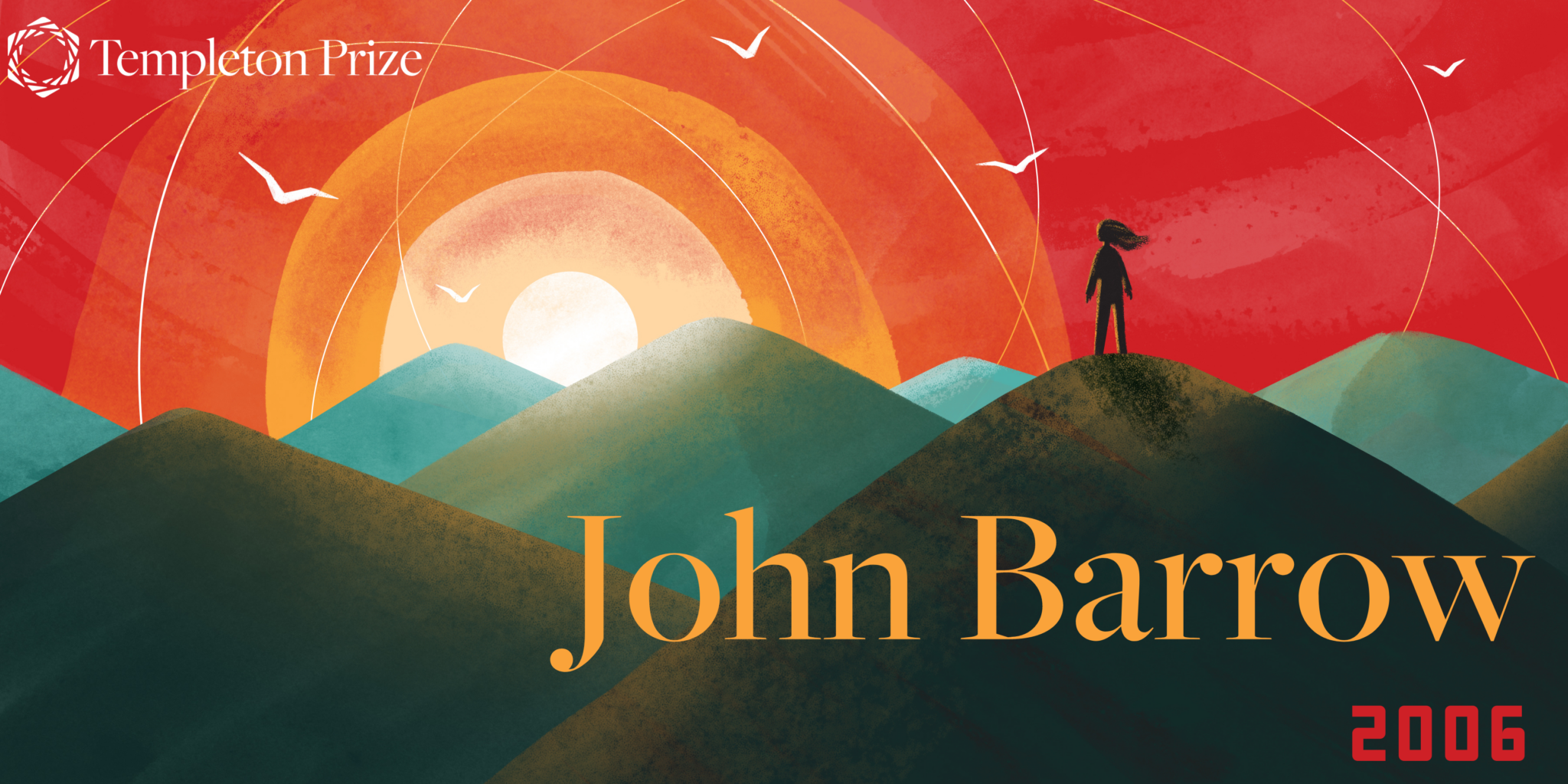In 1973, the first Templeton Prize was given to Mother Teresa. In 2023, we celebrate the 50th anniversary of this award. Over the next 52 weeks, we will highlight each of our laureates and reflect on their impact on the world. From humanitarians and saints to philosophers, theoretical physicists, and one king, the Templeton Prize has honored extraordinary people. Together, they have pushed the boundaries of our understanding of the deepest questions of the universe and humankind’s place and purpose within it, making this (we humbly think) the world’s most interesting prize.
John Barrow was a cosmologist, mathematician, and physicist whose insightful, often playful writings explored the relationship between humankind and the universe.
Barrow was the Research Professor of Mathematical Sciences at Cambridge University, the Gresham Professor of Astronomy at Gresham College in London, and at the time of his death in 2020 served as Cambridge’s Dean of Clare Hall. He received his DPhil in astrophysics from the University of Oxford in 1977, and first caught wide attention with his 1986 book, The Anthropic Cosmological Principle, co-authored with Frank J. Tipler.
Barrow received the 2006 Templeton Prize for his efforts to encourage scientists and theologians to draw upon other fields to test their ideas on the nature and origins of ultimate things: time, space, and matter itself.
He authored or co-authored more than 25 books, written in accessible, lively prose, which were translated into more than two dozen languages; wrote more than 550 scientific papers; and delivered numerous popular lectures and podcasts.
Across his public speaking and writing, he demonstrated the intrinsic limitations of scientific inquiry, and brought to the surface essential questions for theologians and philosophers to consider when examining the essence of belief, human existence, and the behavior of the universe itself.
“Astronomy has transformed the simple-minded, life-averse, meaningless universe of the skeptical philosophers. It breathes new life into so many religious questions of ultimate concern and never-ending fascination,”
said Barrow at the March 15, 2006 news conference at the Church Center for the United Nations in New York at which he was announced as the Prize Laureate. “Many of the deepest and most engaging questions that we grapple with still about the nature of the universe have their origins in our purely religious quest for meaning. The concept of a lawful universe with order that can be understood and relied upon emerged largely out of religious beliefs about the nature of God.”
He added, “Our scientific picture of the universe has revealed time and again how blinkered and conservative our outlook has often been, how self-serving our interim picture of the universe, how mundane our expectations, and how parochial our attempts to find or deny the links between scientific and religious approaches to the nature of the universe.”
In 1989, Professor Barrow delivered the Gifford Lectures at Glasgow University during the centennial year of the program, and, at the time, was the youngest Gifford Lecturer ever.
He received his award at a private ceremony hosted by HRH Prince Philip, Duke of Edinburgh, at Buckingham Palace, London.
“Many of the deepest and most engaging questions that we grapple with still about the nature of the Universe have their origins in our purely religious quest for meaning. The concept of a lawful Universe with order that can be understood and relied upon emerged largely out of religious beliefs about the nature of God.”
–John Barrow
The hallmark of his work is a deep engagement with those aspects of the structure of the universe and its laws that make life possible and which shape the views that we take of that universe when we examine it. The vast elaboration of that simple idea has lead to a huge expansion of the breadth and depth of the dialogue between science and religion.
—Thomas Torrance
